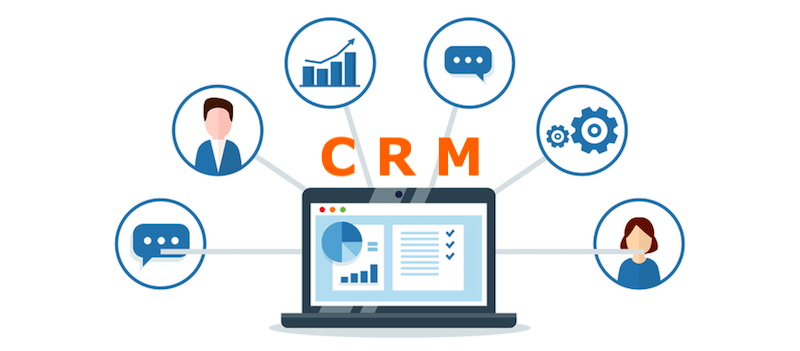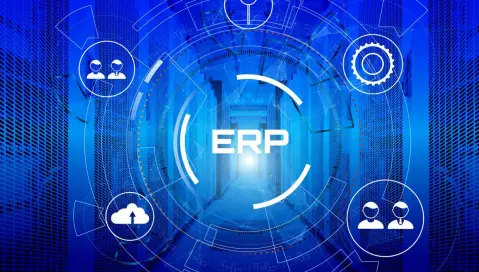In today’s fast-paced world, building strong relationships is crucial for personal and professional success. Customer Relationship Management (CRM) systems are powerful tools that help organizations streamline communication and tailor interactions to individual needs, fostering stronger connections.
CRM systems boost customer relationships by personalizing interactions and improving communication. ERP systems streamline operations by integrating core processes and automating tasks.
What is CRM?
Customer Relationship Management (CRM) is more than just a software tool—it’s a strategic approach to managing and improving customer relationships. At its core, CRM helps businesses understand their customers better, enabling them to create more personalized and meaningful interactions.

CRM systems gather and analyze data from various customer touchpoints, such as sales, marketing, and customer service. This data is then used to tailor communications, anticipate customer needs, and foster stronger connections. By centralizing customer information into one accessible place, CRM systems make it easier for teams to collaborate and serve clients effectively.
How CRM Enhances Relationships?
Personalized Interactions:
CRM systems provide valuable insights into customer behavior and preferences. For instance, if a customer frequently purchases certain types of products, a CRM can help businesses tailor their marketing efforts to suggest similar items. This personalized approach makes customers feel valued and understood, which in turn builds loyalty and satisfaction.
Improved Communication:
Effective communication is key to any strong relationship. CRM systems ensure that all team members have access to the same customer information. This unified view of customer interactions helps avoid miscommunication and ensures that every customer touchpoint is consistent and relevant.
Increased Customer Retention:
Retaining existing customers is often more cost-effective than acquiring new ones. CRM systems track customer interactions and feedback, allowing businesses to address issues promptly and enhance their overall service. By staying attuned to customer needs and preferences, businesses can maintain higher levels of satisfaction and loyalty.
Read Also: Jenna Aze – From Digital Enthusiast To Industry Leader!
Steps to Implement CRM Successfully:
- Choose the Right Software: There are numerous CRM solutions available, such as Salesforce, HubSpot, and Zoho. Each offers different features tailored to various business needs. Evaluate your organization’s requirements and choose a CRM that aligns with your goals.
- Train Your Team: Successful CRM implementation requires thorough training. Organize workshops or training sessions to help your team become familiar with the new system. Encourage questions and feedback to ensure everyone is comfortable using the CRM effectively.
- Set Clear Goals: Define specific objectives for your CRM system, such as improving customer retention or streamlining communication. Regularly assess progress towards these goals and make adjustments as needed to stay on track.
- Monitor and Adapt: Continuously evaluate the performance of your CRM system. Analyze data, gather feedback, and adjust strategies to ensure the system remains effective in meeting your objectives.
What is ERP?
Enterprise Resource Planning (ERP) systems are comprehensive software platforms designed to integrate and manage core business processes across an organization. By unifying functions such as finance, human resources, manufacturing, and supply chain management, ERP systems eliminate data silos and ensure smooth operations.
How ERP Systems Improve Business Efficiency?
Centralized Data Management: ERP systems provide a single source of truth for all business data. This centralized approach reduces the risk of errors and inconsistencies, ensuring that everyone in the organization has access to accurate and up-to-date information.

Enhanced Decision-Making:
With real-time data and analytics, ERP systems support informed decision-making. Managers can access comprehensive reports and insights to make strategic choices that drive business growth.
Streamlined Processes:
ERP systems automate routine tasks, such as payroll processing and inventory management. This automation reduces manual effort and increases efficiency, allowing employees to focus on more value-added activities.
Key Functions of ERP Systems:
- Finance Management: ERP systems handle financial tasks such as accounting, budgeting, and financial reporting. They ensure accuracy and compliance, making it easier to manage financial operations.
- Human Resources (HR): ERP systems manage employee data, payroll, recruitment, and performance evaluations. This integration simplifies HR processes and improves workforce management.
- Manufacturing: ERP systems optimize production planning, inventory control, and quality assurance. They help ensure that manufacturing processes run smoothly and efficiently.
- Supply Chain Management: ERP systems integrate procurement, logistics, and inventory management. This integration streamlines supply chain operations and ensures timely deliveries.
Read Also: Chatterbait Social Media – A New Era In Networking!
Steps to Implement ERP Successfully:
- Conduct a Needs Assessment: Assess your organization’s needs to identify key processes that require integration. This assessment will guide you in selecting an ERP solution that aligns with your business goals.
- Choose the Right Solution: Select an ERP system that matches your requirements. Consider factors such as scalability, ease of use, and vendor reputation. Decide between cloud-based or on-premises solutions based on your business needs.
- Ensure Data Migration: Accurate data migration is crucial for a successful ERP implementation. Transfer existing data to the new system carefully to avoid disruptions and maintain data integrity.
- Provide Training and Support: Invest in training programs to help employees adapt to the new ERP system. Implement change management strategies to support staff through the transition and ensure smooth adoption.
Emerging Trends in ERP Systems:
- Cloud-Based Solutions: Cloud ERP systems offer flexibility and remote access. They allow organizations to access data from anywhere and often come with lower upfront costs and easier scalability.
- Integration of AI and Machine Learning: Artificial Intelligence (AI) and Machine Learning (ML) are increasingly integrated into ERP systems. These technologies enable predictive analytics, automate routine tasks, and provide valuable insights for decision-making.
- Focus on User Experience: Modern ERP systems prioritize user experience with intuitive interfaces and user-friendly designs. This focus enhances employee adoption and reduces the learning curve.
FAQs:
1. What is CRM and how does it benefit businesses?
CRM (Customer Relationship Management) systems help businesses manage interactions with customers by personalizing communication and tracking behavior. This leads to improved customer satisfaction and retention.
2. How can ERP systems improve business efficiency?
ERP (Enterprise Resource Planning) systems integrate core business processes like finance, HR, and manufacturing into a unified platform. This reduces data silos, enhances decision-making, and streamlines operations.
3. What are the key differences between CRM and ERP systems?
CRM systems focus on managing customer relationships and interactions, while ERP systems manage internal business processes and resources. CRM improves customer engagement, and ERP optimizes overall operational efficiency.
4. How do cloud-based ERP systems differ from traditional on-premises ERP?
Cloud-based ERP systems offer greater flexibility, remote access, and lower upfront costs compared to traditional on-premises solutions. They also simplify scalability and updates.
5. What emerging trends are influencing CRM and ERP systems?
Current trends include the integration of AI and machine learning for predictive analytics, cloud-based solutions for greater flexibility, and improved user interfaces for better user experience.
Conclusion:
CRM and ERP systems are essential tools for building and maintaining strong relationships, whether with customers or within an organization. By leveraging these systems, businesses can enhance communication, personalize interactions, and streamline operations.
Read Also:



